-
 Bitcoin
Bitcoin $105,347.8711
0.96% -
 Ethereum
Ethereum $2,550.5078
1.39% -
 Tether USDt
Tether USDt $1.0004
-0.02% -
 XRP
XRP $2.1582
1.72% -
 BNB
BNB $651.7235
0.44% -
 Solana
Solana $146.5846
1.78% -
 USDC
USDC $0.9999
0.01% -
 Dogecoin
Dogecoin $0.1777
2.68% -
 TRON
TRON $0.2709
-0.51% -
 Cardano
Cardano $0.6373
0.79% -
 Hyperliquid
Hyperliquid $42.2043
6.47% -
 Sui
Sui $3.0476
1.60% -
 Chainlink
Chainlink $13.2702
0.27% -
 Bitcoin Cash
Bitcoin Cash $435.5686
7.57% -
 UNUS SED LEO
UNUS SED LEO $9.0412
1.45% -
 Avalanche
Avalanche $19.3181
1.40% -
 Stellar
Stellar $0.2603
1.22% -
 Toncoin
Toncoin $3.0233
2.01% -
 Shiba Inu
Shiba Inu $0.0...01213
3.46% -
 Hedera
Hedera $0.1588
2.17% -
 Litecoin
Litecoin $86.2495
3.74% -
 Polkadot
Polkadot $3.8196
0.90% -
 Ethena USDe
Ethena USDe $1.0006
0.01% -
 Monero
Monero $311.4040
0.67% -
 Dai
Dai $0.9999
0.01% -
 Bitget Token
Bitget Token $4.5613
1.06% -
 Pepe
Pepe $0.0...01117
4.95% -
 Uniswap
Uniswap $7.4671
4.11% -
 Pi
Pi $0.5866
4.86% -
 Aave
Aave $286.3474
5.97%
What are the common types of blockchain wallet addresses?
Blockchain wallet addresses vary across networks like Bitcoin, Ethereum, and Litecoin, each using unique formats and cryptographic methods for secure transactions.
Jun 13, 2025 at 10:56 pm
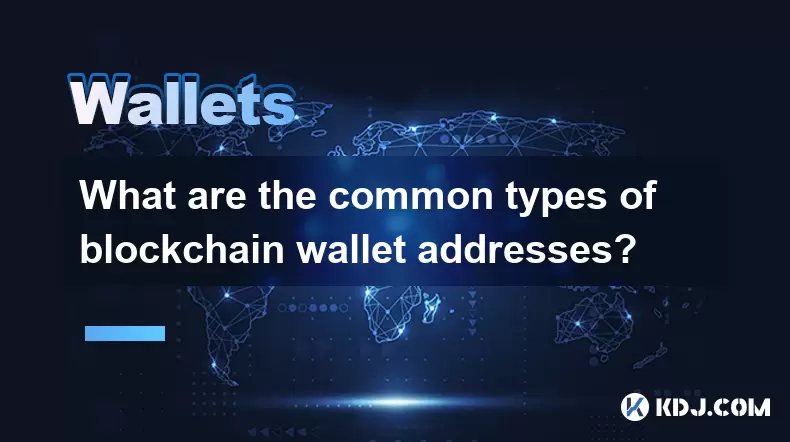
What Are the Common Types of Blockchain Wallet Addresses?
Blockchain wallet addresses are unique identifiers that enable users to send and receive cryptocurrencies securely. Each blockchain network has its own standards for generating these addresses, which vary in format, structure, and cryptographic algorithms.
Bitcoin (BTC) Wallet Addresses
Bitcoin uses several address formats depending on the type of transaction and wallet compatibility. The most common types include Legacy (P2PKH), SegWit (P2SH-P2WPKH), and Bech32 (Native SegWit).
- Legacy (P2PKH): These addresses start with the number "1" and were the original Bitcoin address format. They are longer and less efficient due to higher transaction fees.
- SegWit (P2SH-P2WPKH): Starting with "3", this format was introduced to improve scalability by separating signature data from transaction data.
- Bech32 (bc1q...): Native SegWit addresses begin with "bc1" followed by a "q". This format offers lower fees and better error detection capabilities.
Each of these formats is generated using Elliptic Curve Digital Signature Algorithm (ECDSA) and hashing functions like SHA-256 and RIPEMD-160.
Ethereum (ETH) Wallet Addresses
Ethereum addresses are derived from the public key using the Keccak-256 hashing algorithm, resulting in a 40-character hexadecimal string prefixed with "0x". For example: 0xAbCdef1234567890abcdef1234567890ABCDefgh.
One notable feature of Ethereum addresses is case sensitivity support via checksums, introduced in EIP-55. This allows mixed-case letters to help detect typos when entering an address manually.
- Externally Owned Accounts (EOA): Controlled by private keys and used for standard transactions.
- Contract Accounts: Generated by deploying smart contracts and controlled by their code logic.
Users can generate Ethereum addresses using wallets such as MetaMask, Trust Wallet, or hardware wallets like Ledger or Trezor.
Litecoin (LTC) and Similar Altcoins
Litecoin follows a similar structure to Bitcoin but uses different prefixes:
- Legacy (P2PKH): Starts with "L".
- SegWit (P2SH): Begins with "M".
- Bech32: Uses the prefix "ltc1".
These variations are primarily due to differences in version bytes during the Base58Check encoding process. Other altcoins like Dogecoin and Bitcoin Cash also follow similar conventions, with unique prefixes and hashing mechanisms.
Generating a Litecoin address involves:
- Creating a private key using ECDSA secp256k1
- Deriving the public key
- Hashing it with SHA-256 and RIPEMD-160
- Adding the appropriate version byte before applying Base58Check encoding
Ripple (XRP) Wallet Addresses
Ripple's wallet addresses start with the letter "r" and are encoded using Base58Check, similar to Bitcoin. However, the internal structure differs significantly.
The generation process includes:
- Generating a seed (secret key)
- Deriving a family seed
- Using it to create a public/private key pair
- Encoding the public key into an XRP address with specific version bytes
An example of an XRP address looks like: rHb9CJAWy18p6k6p3kwjGn1fD6A99712v.
Unlike Ethereum, XRP does not use smart contract accounts; all addresses are user-controlled.
Binance Smart Chain (BSC) Wallet Addresses
Binance Smart Chain addresses are compatible with Ethereum’s format, starting with "0x" and being 40 characters long. However, they operate on a separate chain with faster transaction speeds and lower gas fees.
Key points:
- Use the same ECDSA and Keccak-256 hashing methods as Ethereum
- Can be managed using Binance Chain Wallet, Trust Wallet, or MetaMask (with BSC network added)
To interact with BSC, users must switch their wallet network settings to Binance Smart Chain Mainnet or Testnet, depending on the use case.
Frequently Asked Questions (FAQ)
Q: Can I reuse the same wallet address across different blockchains?
No, each blockchain has its own address format and derivation rules. While some may look similar (e.g., Ethereum and BSC), sending funds to the wrong network can result in permanent loss.
Q: Why do some addresses have mixed-case letters?
This is due to EIP-55 checksum formatting, which helps prevent errors when manually entering Ethereum addresses by adding case-sensitive validation.
Q: Are all wallet addresses irreversible once created?
Yes, once a wallet address is generated, it cannot be changed. Users must always double-check the recipient address before sending any cryptocurrency.
Q: How can I verify if an address belongs to a specific blockchain?
You can check the prefix (e.g., "bc1" for Bitcoin Bech32, "0x" for Ethereum) or use a blockchain explorer associated with that network to validate the address structure.
Disclaimer:info@kdj.com
The information provided is not trading advice. kdj.com does not assume any responsibility for any investments made based on the information provided in this article. Cryptocurrencies are highly volatile and it is highly recommended that you invest with caution after thorough research!
If you believe that the content used on this website infringes your copyright, please contact us immediately (info@kdj.com) and we will delete it promptly.
- Uniswap’s UNI Price Gains Traction
- 2025-06-14 15:40:12
- CoinShares Has Officially Registered a Solana ETF in Delaware Today
- 2025-06-14 15:40:12
- Pump.fun has once again offloaded a significant tranche of SOL
- 2025-06-14 15:35:12
- Midnight Protocol Aims to Transform Cardano: Charles Hoskinson reveals plans to connect Cardano, Bitcoin, and other chains via secure, cross-chain DeFi.
- 2025-06-14 15:35:12
- BitMart Exchange Lists NPCS AI (XNPCS) Tokenizing Next-Generation Analytics on the Solana Blockchain
- 2025-06-14 15:30:12
- Should Apple Buy Bitcoin? Michael Saylor Thinks So
- 2025-06-14 15:30:12
Related knowledge
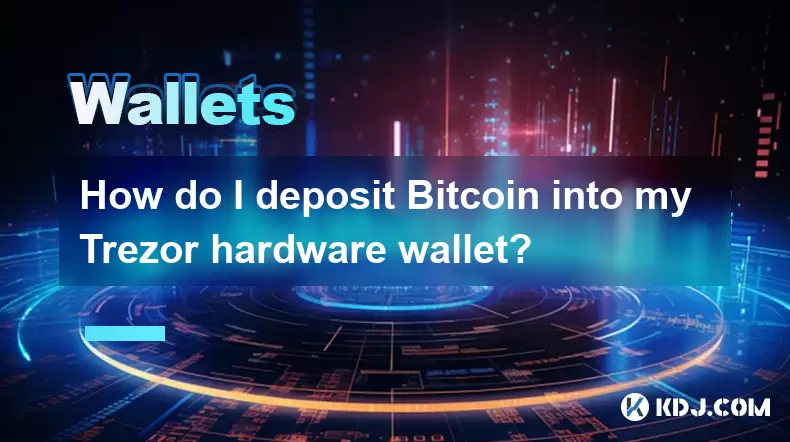
How do I deposit Bitcoin into my Trezor hardware wallet?
Jun 14,2025 at 12:29pm
What is a Trezor Hardware Wallet?A Trezor hardware wallet is a secure device designed to store cryptocurrencies offline, protecting them from online threats. Unlike software wallets, which are vulnerable to hacking and malware, Trezor stores private keys on the physical device itself. This ensures that transactions can only be approved by physically int...
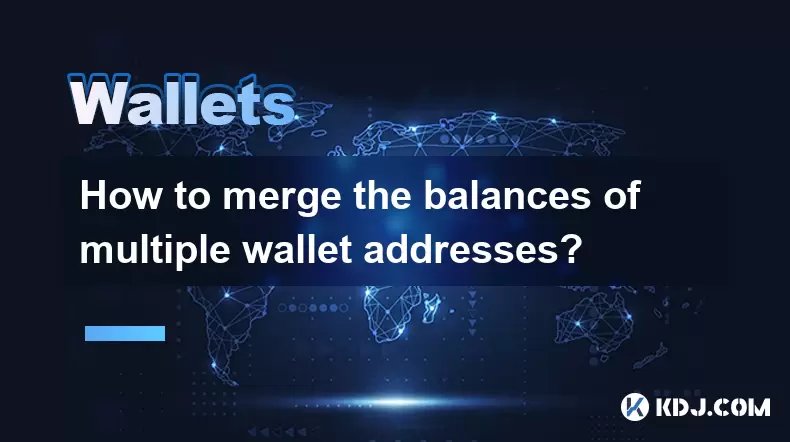
How to merge the balances of multiple wallet addresses?
Jun 13,2025 at 06:21pm
Understanding the Concept of Merging Wallet BalancesMerging the balances of multiple wallet addresses involves consolidating funds from different cryptocurrency wallets into a single address or account. This process is commonly undertaken by users who manage several wallets for security, diversification, or organizational purposes. Merging balances can ...
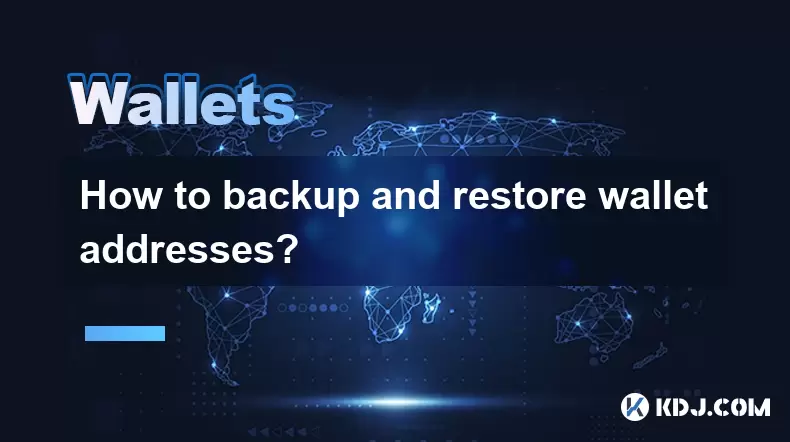
How to backup and restore wallet addresses?
Jun 14,2025 at 03:21pm
Understanding Wallet Addresses in CryptocurrencyIn the world of cryptocurrency, a wallet address is a unique identifier that allows users to send and receive digital assets. It functions similarly to an email address or bank account number. Each wallet address is associated with a private key, which grants access to the funds stored at that address. Los...
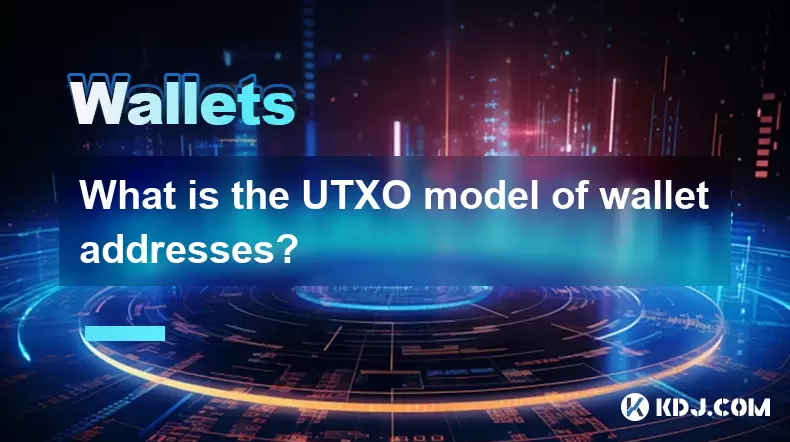
What is the UTXO model of wallet addresses?
Jun 14,2025 at 03:01am
Understanding the UTXO Model in CryptocurrencyThe UTXO (Unspent Transaction Output) model is a fundamental concept in blockchain technology, particularly in cryptocurrencies like Bitcoin. Unlike account-based models used by some other blockchains, such as Ethereum, the UTXO model functions more like physical cash transactions. Each transaction consumes ...
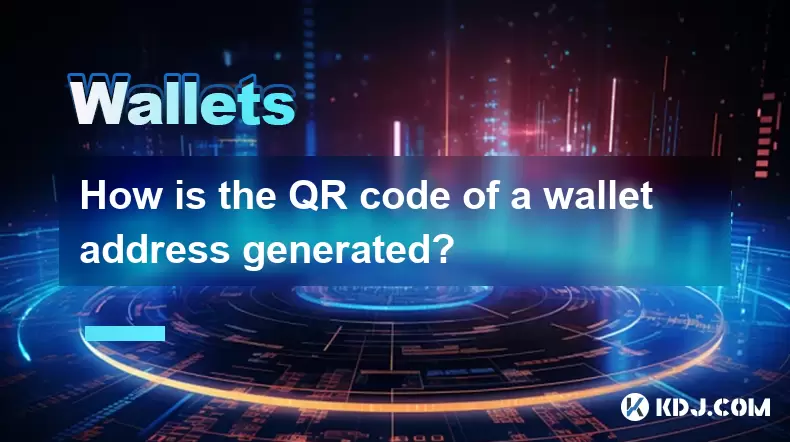
How is the QR code of a wallet address generated?
Jun 13,2025 at 10:49pm
Understanding the Basics of a Wallet AddressA wallet address is a unique identifier used in blockchain networks to send and receive cryptocurrencies. It is derived from a pair of cryptographic keys — a private key and a public key. The private key is kept secret and grants control over the funds, while the public key is used to generate the wallet addre...
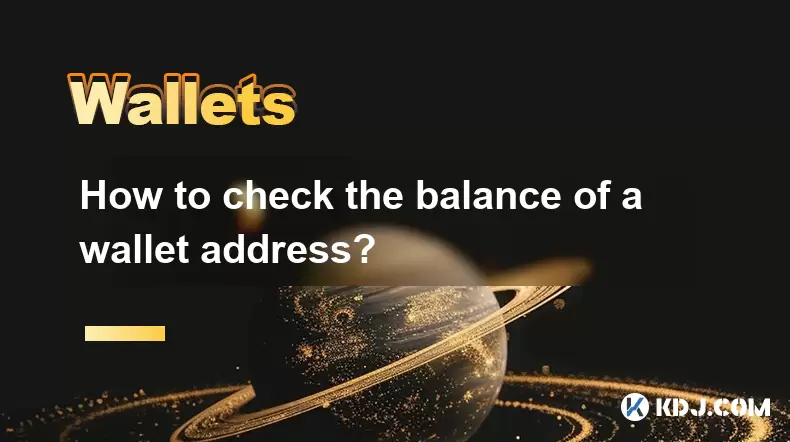
How to check the balance of a wallet address?
Jun 14,2025 at 08:56am
Understanding Wallet Addresses and Their ImportanceIn the world of cryptocurrency, a wallet address is a unique identifier used to send and receive digital assets. It functions similarly to an email address or bank account number. Every wallet address corresponds to a specific blockchain network, such as Bitcoin (BTC), Ethereum (ETH), or any other suppo...

How do I deposit Bitcoin into my Trezor hardware wallet?
Jun 14,2025 at 12:29pm
What is a Trezor Hardware Wallet?A Trezor hardware wallet is a secure device designed to store cryptocurrencies offline, protecting them from online threats. Unlike software wallets, which are vulnerable to hacking and malware, Trezor stores private keys on the physical device itself. This ensures that transactions can only be approved by physically int...

How to merge the balances of multiple wallet addresses?
Jun 13,2025 at 06:21pm
Understanding the Concept of Merging Wallet BalancesMerging the balances of multiple wallet addresses involves consolidating funds from different cryptocurrency wallets into a single address or account. This process is commonly undertaken by users who manage several wallets for security, diversification, or organizational purposes. Merging balances can ...

How to backup and restore wallet addresses?
Jun 14,2025 at 03:21pm
Understanding Wallet Addresses in CryptocurrencyIn the world of cryptocurrency, a wallet address is a unique identifier that allows users to send and receive digital assets. It functions similarly to an email address or bank account number. Each wallet address is associated with a private key, which grants access to the funds stored at that address. Los...

What is the UTXO model of wallet addresses?
Jun 14,2025 at 03:01am
Understanding the UTXO Model in CryptocurrencyThe UTXO (Unspent Transaction Output) model is a fundamental concept in blockchain technology, particularly in cryptocurrencies like Bitcoin. Unlike account-based models used by some other blockchains, such as Ethereum, the UTXO model functions more like physical cash transactions. Each transaction consumes ...

How is the QR code of a wallet address generated?
Jun 13,2025 at 10:49pm
Understanding the Basics of a Wallet AddressA wallet address is a unique identifier used in blockchain networks to send and receive cryptocurrencies. It is derived from a pair of cryptographic keys — a private key and a public key. The private key is kept secret and grants control over the funds, while the public key is used to generate the wallet addre...

How to check the balance of a wallet address?
Jun 14,2025 at 08:56am
Understanding Wallet Addresses and Their ImportanceIn the world of cryptocurrency, a wallet address is a unique identifier used to send and receive digital assets. It functions similarly to an email address or bank account number. Every wallet address corresponds to a specific blockchain network, such as Bitcoin (BTC), Ethereum (ETH), or any other suppo...
See all articles

























































































